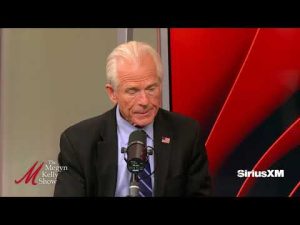In today’s polarized political climate, the safety of political figures has become a matter of paramount concern. Recent events have underscored the urgent need for an overhaul in the security protocols at political gatherings. While it is commendable that the response to a recent incident was swift and well-coordinated among federal, state, and local law enforcement, the lessons to be learned go beyond applause for effective teamwork. The question at hand is why certain vulnerabilities, such as security at higher vantage points, were not anticipated and addressed beforehand.
The collaboration between the FBI and other law enforcement agencies exemplifies what effective coordination can achieve. It is no small feat to manage a massive crime scene with precision, ensuring that every piece of evidence is meticulously collected. The American taxpayer deserves to know that their investment into these agencies translates into action that is as efficient as it is effective. In this particular incident, the ability to reach the scene promptly and initiate a thorough forensic investigation is a testament to preparedness and skill.
However, while the agencies deserve recognition for their prompt actions, it would be foolish to ignore the glaring oversight. The fact that a critical vantage point was left unsecured suggests a gap in the planning process. In an era where political events are under increasing scrutiny and sometimes threat, failing to cover all security angles poses unacceptable risks. This incident should serve as a wake-up call to tighten the net of security measures, making sure no stone is left unturned, especially in high-stakes environments.
The narrative of what transpired has an emotional undertone, with personal belongings left behind serving as poignant reminders of the human aspect of such tragedies. It’s a stark reminder that political figures and their supporters are not just symbols or numbers—they are people. Ensuring their safety is not just a procedural duty but a moral one as well. The aftermath, strewn with everyday items like water bottles and baby carriages, tells an unsettling story of vulnerability.
Moving forward, it is critical to re-evaluate security protocols with precision and foresight. While improvisation is laudable in emergencies, anticipation is key to prevention. Political events, regardless of their nature or the speaker, must adapt to ever-evolving threats with a robust and comprehensive approach to security. This would inevitably mean factoring in new dimensions, such as ensuring that no high ground is left unguarded. Ensuring safety is a non-partisan issue, and it deserves a solution-oriented approach that transcends party lines and prioritizes the safety and well-being of all involved.







